The Genius of Marian - A Family's View of Alzheimer's Disease
By Emilly Munguía Marshall, SPT
A film review and analysis
About the film
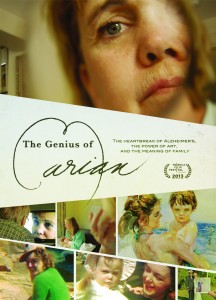 The Genius of Marian is a documentary about Pam White, who was diagnosed with early-onset Alzheimer’s disease in June 2009, at the age of 61. Before her diagnosis, Pam was working on a book in memory of her mother, Marian Williams Steele, who was a renowned, award-winning painter who suffered from the same disease. The film begins a few months after Pam’s initial diagnosis and we learn about her life from narratives by family and friends.
The Genius of Marian is a documentary about Pam White, who was diagnosed with early-onset Alzheimer’s disease in June 2009, at the age of 61. Before her diagnosis, Pam was working on a book in memory of her mother, Marian Williams Steele, who was a renowned, award-winning painter who suffered from the same disease. The film begins a few months after Pam’s initial diagnosis and we learn about her life from narratives by family and friends.
[pl_blockquote]Through intimate shots of daily living, the film explores themes such as unconditional love, sacrifice, caregiving, independence, and mortality.[/pl_blockquote]
Throughout the film, there is a backdrop of subtle understanding that the impact of Alzheimer’s disease extends beyond an individual and the story artfully demonstrates the complex relationships of family and friends who are also forced to cope with the repercussions of this diagnosis. Pam’s son, Banker White, is the filmmaker and poignantly captures the multi-generational effects of illness on their family. In particular, he creatively uses Marian’s paintings, old home movies, and current scenes in their family life to capture the transition of his mother, Pam, from her mother Marian’s caregiver to a recipient of that same care. The slow pace of the film is reflective of the slow progression of the disease and the continuous, delicate changes that have to be made in Pam’s life, as well as her family’s lives, as the disease evolves.
The documentary shows how both those receiving care and caregivers are challenged with adapting to new roles, while struggling to maintain normalcy in the midst of a terminal disease. The film focuses on Ed White, Pam’s husband and primary caregiver. Throughout the film, we get to know who he is: a dedicated, loving father and husband who thoroughly understands his wedding day vow of, “in sickness and health” and who persistently demonstrates his unconditional love for her. At the same time, we watch as he sometimes struggles to be patient with her, or to recognize when he needs help, too.
One of the consequences of needing a caregiver is losing one’s independence and feeling a justifiable loss of identity. The Genius of Marian creatively shows us this sentiment in several ways. On one occasion, Banker is interviewing Pam as she sits in the passenger seat of his car. She tells him her feelings about always needing someone to help her, “There are situations in your life where you just want to get up and go…and it’s not a good situation [to always need a ride].” Pam also tells us that it’s “quite interesting to have my whole family in my room telling me what to do.” This is shortly after one of her sons tries to encourage her to take her medications, and we see Pam in a state of confusion and a little agitated about having to do so. It’s an intimate and difficult moment for both mother and son as they recognize the role reversal of the child caregiving for the parent.
One of the most powerful scenes occurs when Banker is discussing his grandmother, Marian with his mother, trying to explore Pam’s understanding of her own disease process. Pam reflects, “She [Marian] had Alzheimer’s – I don’t”. Banker is quiet, and then gently asks, “Do you remember the doctor saying you had Alzheimer’s disease?” As the audience, we find ourselves immersed in the silence between them, not knowing if her denial comes from confusion, memory loss, or just reluctance to accept the diagnosis. Finally, the long pause is broken and the scene ends when she simply warns him, “Careful.”
A sense of urgency is depicted in the film by a small island in the beach where Pam and Ed’s children used to play. We see a small island several yards into the water, and we learn that the tide recedes for a little while, giving people a chance to go play in this otherwise unreachable place. But with those moments comes a sense of urgency because there is a truth about it that one already knows: the tide will always come back, and you have to be back on mainland before the water levels rise. This imagery of urgency that we sense for the White family depicts for the viewer what being surrounded by a diagnosis as unyielding as Alzheimer’s disease could possibly mean. For Pam and her family, the urgency comes from experiencing what her mother, Marian, went through and knowing what will eventually happen to Pam.
In remembrance, we go back to the inspiration of this film and Pam’s project about her mother: The Genius of Marian. Pam, referring to her mother as the inspiration for this film, wanted to “keep her alive by not forgetting who she was.” The urgency and depth of mortality of life as we know it with progressive diseases like Alzheimer’s is greater than any tide that recedes and returns.
Use as a teaching tool
This film was used in Emory University’s Doctor of Physical Therapy Geriatrics section, as a way to show students like myself the realities of a disease like Alzheimer’s beyond our textbooks. Watching and discussing the film increased my empathy for patients with this disease and broadened my awareness of how family and friends are affected by a terminal diagnosis. The documentary shows Pam and her fight of wanting versus needing help, but also highlights the challenges caregivers face; and the medical progression and realities that come with Alzheimer’s disease. Understanding and appreciating the humanity of our patients and their families may be achieved better through this kind of medium and exercise, versus memorizing signs and symptoms and taking multiple choice exams. This recognition of humanity will serve us well as healthcare providers, teaching us to relate to patients and their stories as they present to us.
Interview with the director, Banker White
March 18th 2015 – Emilly Marshall, SPT; Sarah Blanton, PT, DPT, NCS; Katherine Vorhoorst, SPT
In an interview with film director, Banker White, he tells us that the film didn’t start as a documentary, it was more an extension of his mom’s book project that later became a family project. He was inspired with his grandmother’s art, and as an artist himself, he took the time to go through archives, movies, and paintings with his mother. Banker would soon find that his mother’s project would mean more than she intended it to, which led to the depth of The Genius of Marian.
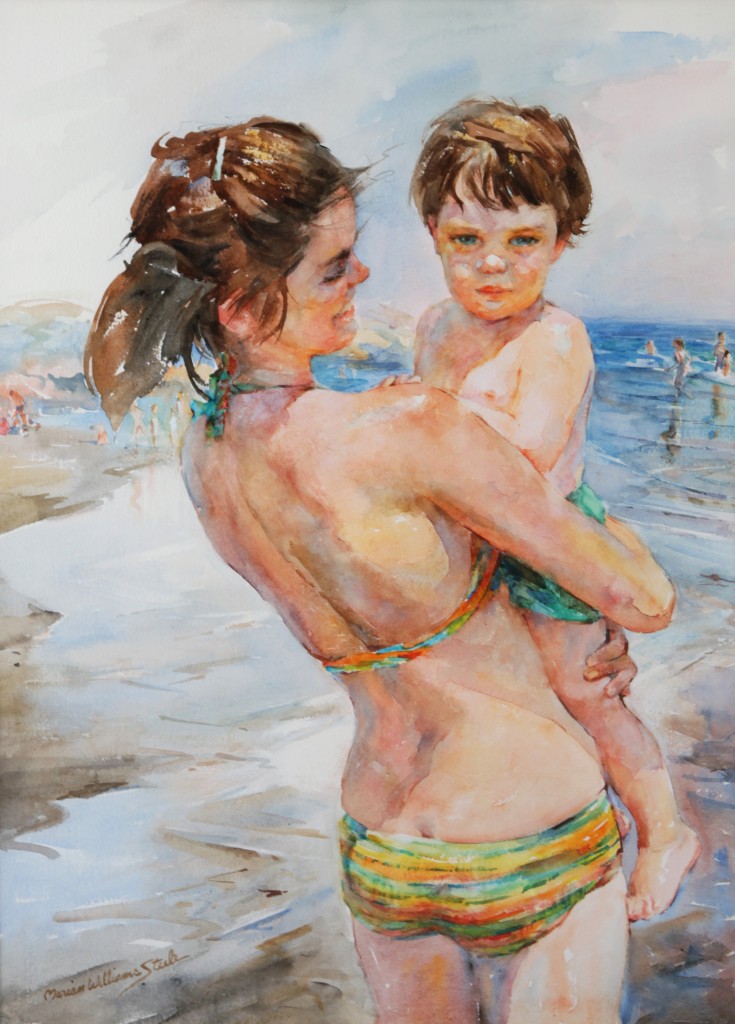
Subject: Watercolor painting entitled “Last Summer” ©1978 featuring Pam White & Banker White by the beach in Gloucester, MA.
Artist: Marian Williams Steele
Photographer: Banker White
For Banker, the film started “as a love letter to my mom and grandma. It was for personal reasons, and I never thought it would become what it has.”
One goal in making this documentary was to open a door to discussing the difficult topics in healthcare such as a life-changing diagnosis, loss, and grief among others. The Genius of Marian has opened that door for many people. Banker describes the feedback that he has received since releasing the film. “Other families thank us, and thank my mom-and make me feel like we’ve accomplished our goal.”
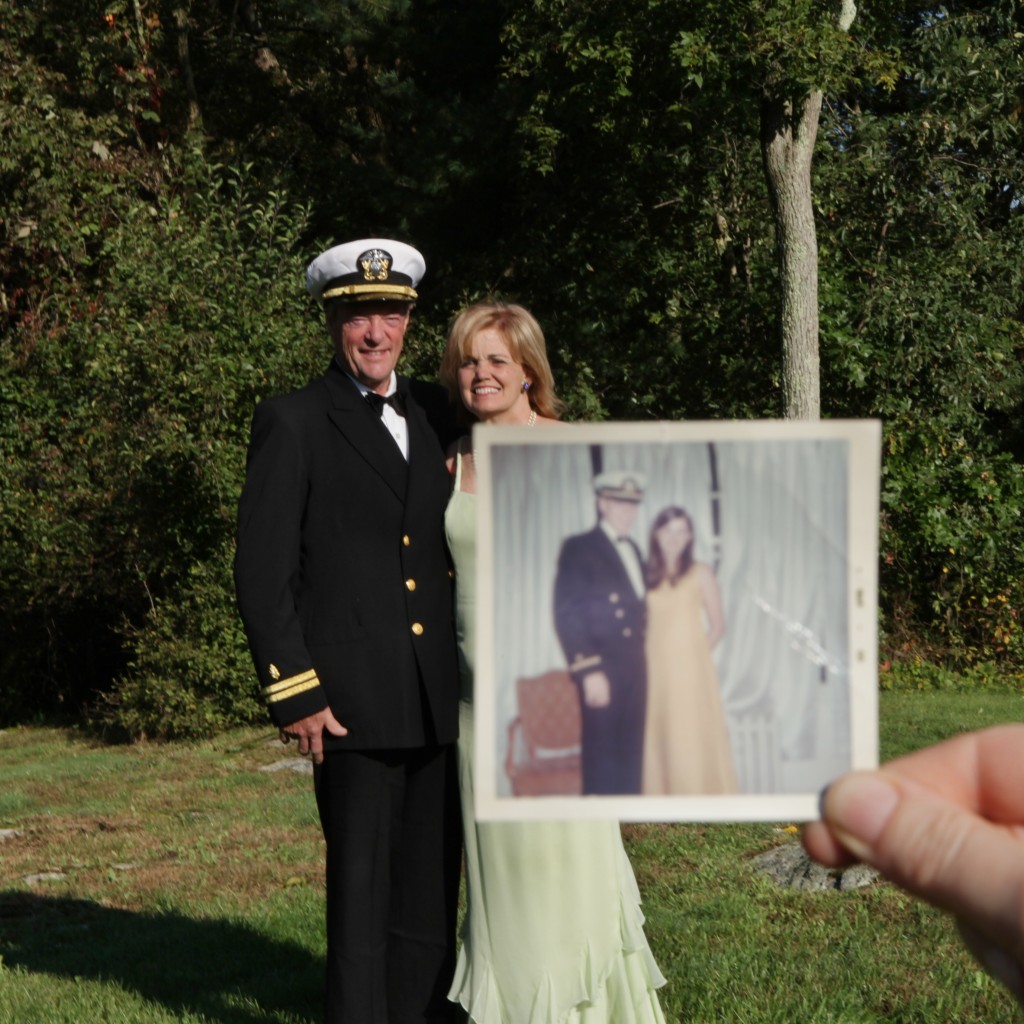
Subject: Ed White & Pam White
Photographer: Banker White
Another goal for this film was to encourage more open conversations between provider and patient about needs to cope with said diagnosis or change. Whether it is knowing what questions to ask a healthcare provider, understanding the diagnosis, or recognizing caregiver concerns and needs, Banker feels that creating a space for these conversations is important especially for healthcare providers as it might be “impossible [for them] to know what it’s like at home.”
Poignantly, Banker shares one of the most difficult challenges of caregiving – how family relationships and roles are shifted in the face of disease that changes a person’s personality or cognitive abilities:
“If you can be patient – if you can show up, love someone and not have that love being reciprocated, not have it look and feel like it used to, something as simple as a conversation that doesn’t take the path is used to in the past. This person you love is changing, that patience is, I think, one of the most special lessons I’ve learned in the last four years.”
In the process of learning what depth this film had on several communities, Banker tells us that he also learned about the marriage and closeness of his parents, Pam and Ed. “I didn’t expect all that. It [making the film] was really about really getting to know them”, he says in reference to learning about how his parents believed in creating a close family and how that affected the development of their relationship “and what was important for them. I feel close to both of my parents, but there’s something about the nature of this project…Maybe as kids we didn’t have the space to create more questions” to truly see each other. Banker reflects on appreciating the opportunity this film created for his family to have deeper conversations that led to closer connections and better understanding of what matters in their family. “Making the film opened up a way for my dad and I to connect”, Banker says. “We’re all a close family, but it doesn’t mean that all of us communicate very well, especially around things that are emotionally difficult…the film changed the way we communicate.” He tells us how setting up the camera and making it a formal event created a safe space for family and friends to express themselves and confront the difficulties they were facing. “Unspoken support” can be meaningful, but the clarity of a conversation can sometimes be more helpful to all. This realization led Banker to another project, The Genius of Caring.
About The Genius of Caring
The making of The Genius of Marian inspired the creation of The Genius of Caring public art project. The Genius of Caring is a web-based community that is designed to promote sharing among those who are acting as caregivers for loved ones with neurodegenerative diseases, such as Alzheimer’s. This sharing creates an opportunity for learning about and engaging with the complexities of caring for those with varying levels of dementia. The Genius of Caring provides important insight into caregiver and patient experiences that should be used to enrich the understanding of healthcare professionals and students entering healthcare related fields.
The interactive nature of The Genius of Caring enables those who contribute to find a community of people who understand the challenges and triumphs of intensive care giving roles. Neurodegenerative diseases often result in some level of isolation for the person experiencing the disease and those who are caring for him or her. This narrative project seeks to gracefully address that isolation through compassion, story-telling, and direct acknowledgement of difficult conversations.
Website: http://geniusofcaring.com
About the Filmmakers
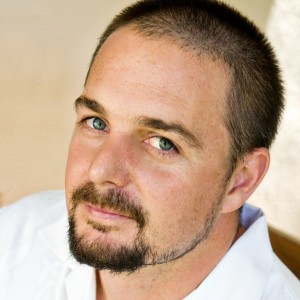
Banker White
Director, The Genius of Marian
Banker White, son of Pam and Ed White, is a multi-disciplinary artist based in San Francisco. His projects have been supported by the Sundance Documentary Fund, the National Endowment for the Arts, Creative Capital, the Tribeca Film Institute, Impact Partners, the LEF Foundation, the BRITDOC Foundation, the Catapult Film Fund, The Fledgling Fund, Cal Humanities and the Pacific Pioneer Fund. He is the director/producer of the documentary Sierra Leone’s Refugee All Stars (2007), which won more than a dozen international film festival awards and has been seen on television in North America, Latin America, Europe, Japan, Korea, South Africa, and Uganda. Banker also founded WeOwnTV, a collaborative filmmaking and storytelling project based in Freetown, Sierra Leone. He lives in San Francisco with his wife, Anna Fitch, and their daughter, Dylan.
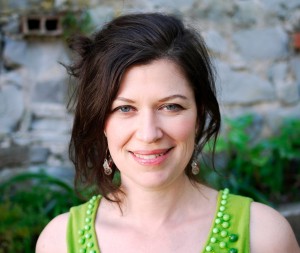
Anna Fitch
Producer/Co-Director, The Genius of Marian
Anna Fitch, Producer and Co-Director of this film, is an Emmy-winning director with a background in natural history filmmaking and a degree in Entomology. Anna’s documentary work has aired on the National Geographic Channel, TLC, Channel 4 (UK), and PBS. Awards and nominations include: an Emmy Award for Best Documentary Directing for BugWorld: War of Two Worlds; a CINE special jury award for Best Environment and Natural Science Film for Bug Attack; and a VideoFest MCCLA Best Documentary award for ManMade: The Bra. Anna also directed the short narrative film, The Burning Wigs of Sedition (2010), featuring the Extra Action Marching Band. She lives in San Francisco with her husband, Banker White, and their daughter, Dylan.
Access to Film and Educational License
To obtain a copy of the Genius of Marian DVD, see link below. Included are a facilitator’s guide and tips on hosting a community screening.
http://geniusofmarian.portmerch.com/stores/product.php?productid=18952&cat=0&page=1&featured
References
http://www.pbs.org/pov/geniusofmarian/bio.php
http://weowntv.org/


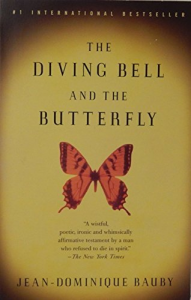
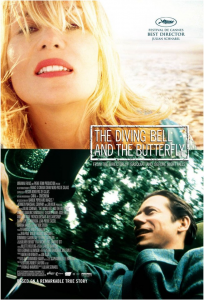

 Member since 2019 | JM14274
Member since 2019 | JM14274


NO COMMENT